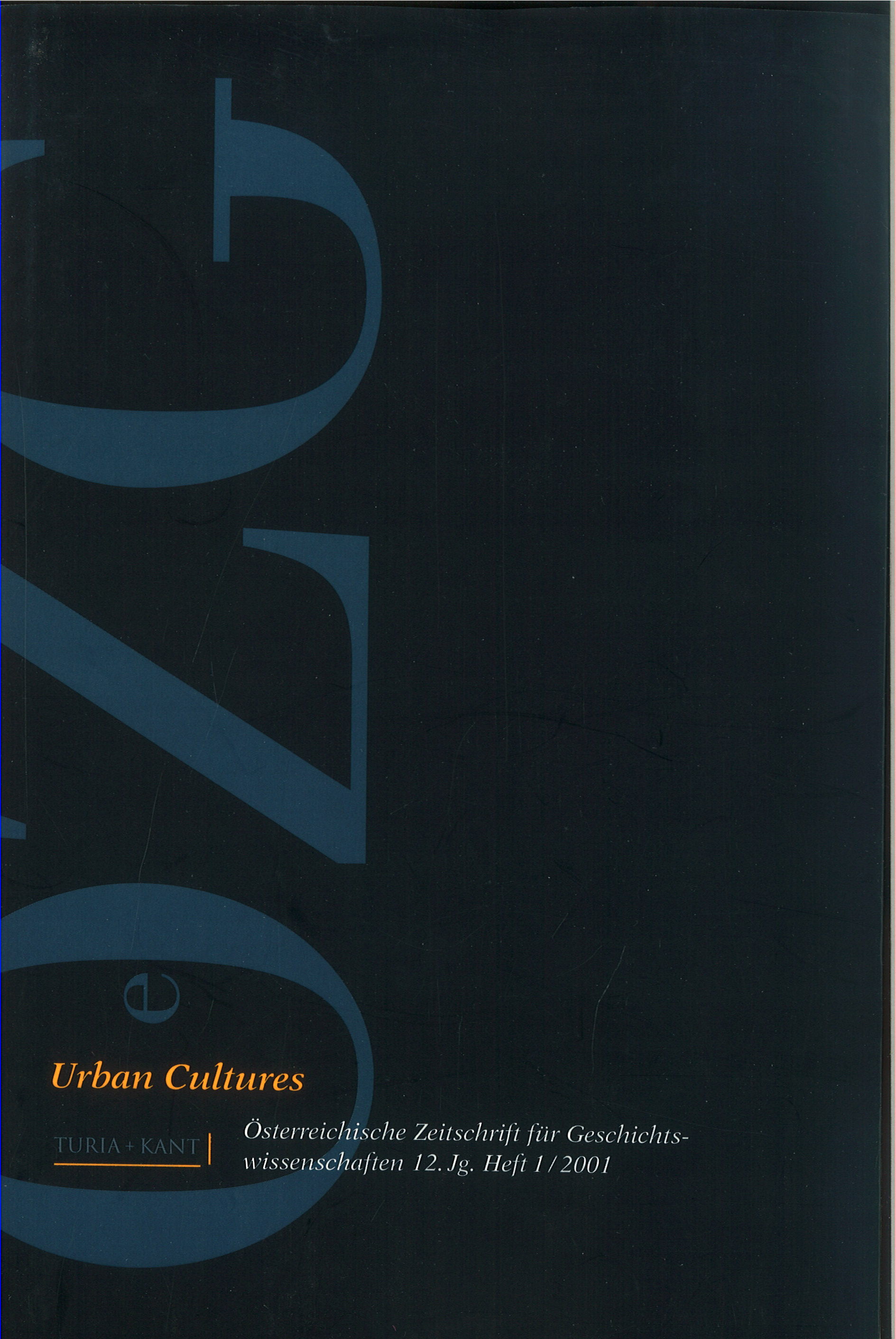Cinema passion
Social space and political movement in Vienna since 1945
DOI:
https://doi.org/10.25365/oezg-2001-12-1-6Abstract
In this contribution the author argues that perception is not something a-historical, given for eternity, but that there is also - with respect to the shaping of our attention - a tension between historic change concerning the structures of perception and that which remains always beyond our attempts to symbolize, that is to negotiate the impossibilities of modern life. This means that in modernity we have a transformation of the ways of perception towards something which the author calls an >eventful seeing<, which also involves phantasmapoetic processes of fetish-becoming. The article examines ways in which modern and postmodern cities need the cinema as a kind of >private public space<, that is a space dedicated exclusively to the reflection upon oneself, life, impossibilities etc., and how a transformation in the shaping of that >private public space< as a space of the political has taken place in the last decades.


